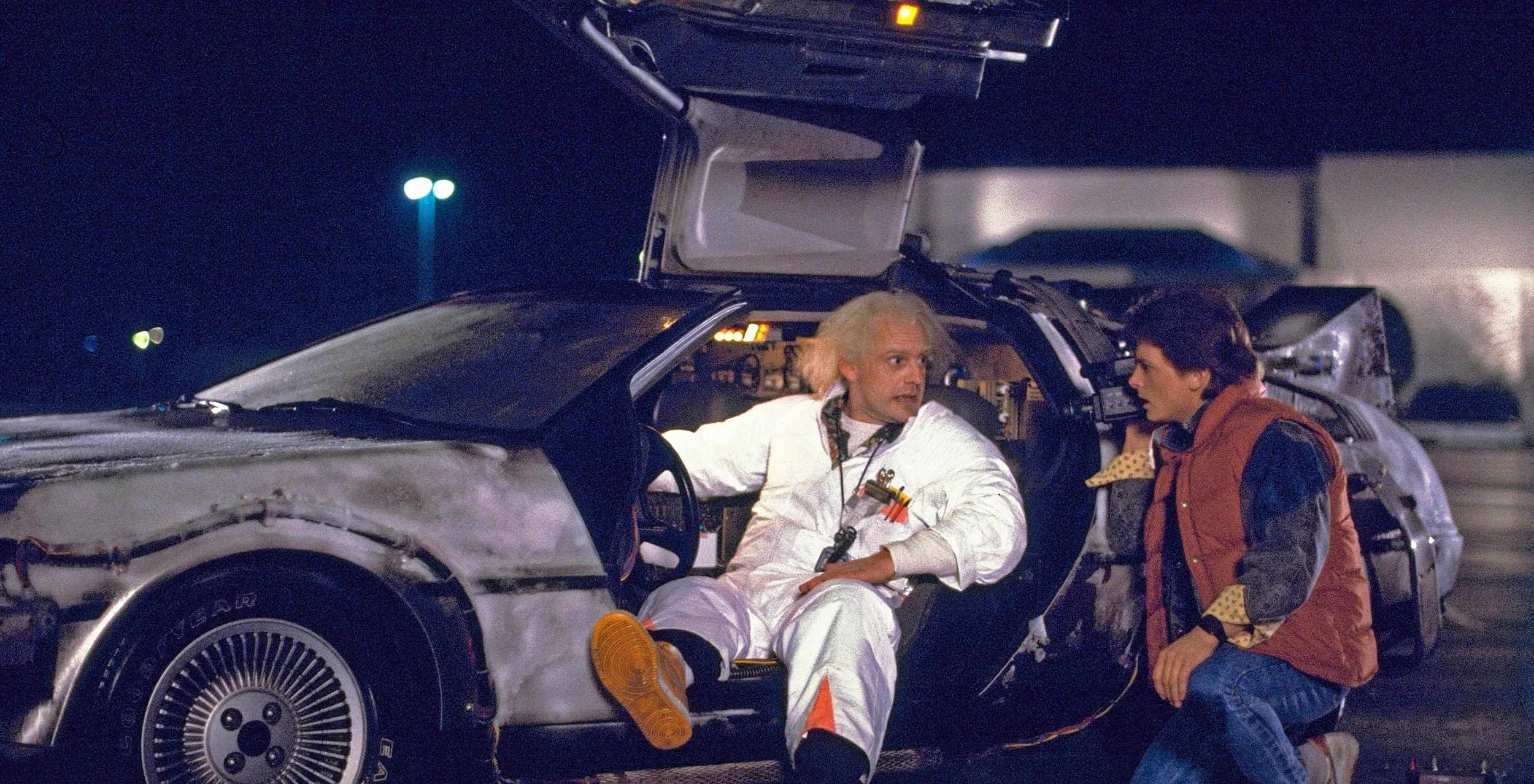Building guitar pedals
Guitar pedals are the ultimate in G.A.S. (Gear Acquisition syndrome). For as little as £15 you can get a new piece of kit which promises to revolutionise your guitar playing and your songwriting. They even fit in your back pocket and it can take a while for your significant other to notice they are multiplying.
It’s a little known fact that Lennon and McCartney were just sitting around playing Guns and Roses riffs on two les Paul copies until they discovered the correct boutique overdrive pedal and started writing songs.
Back in the olden days of the 1990s when the internet was still struggling with teenage acne and growth spurts, people started to share schematics and diagrams for how effect pedals work(previously you would need to a scour a library). As I was doing an electronics degree at the time, the knowledge and parlance was slowly being revealed for a world which had hitherto been the domain of wizards, warlocks and magic boxes. As I unlocked this grimoire, I even had access to components and bits and bobs in the electronics department of the University of Glasgow.
If anyone accuses me of ordering pedal parts on the University budget I’ll deny it, although I will admit that we made the wee woman who controlled the orders search for a 1.21 Gigawatt Flux Capacitor every time we went.
Every time we spoke to people with more knowledge than us, they kind of shrugged the concept off as being so incredibly simple that it wasn't worth bothering about. They clearly hadn't spent their youth listening to albums called Superfuzz Big Muff and the like. I put a couple of things together, but never persevered enough to have anything to write home about. I’d lose interest or have an exam or need to go to the pub or something.
Fastforward to the halcyon days of the early 2000’s when a few companies had started doing a lot of the leg work for you by putting together PCB’s and a box of parts and a drilled enclosure. I did my homework and discovered one such company called Build Your Own Clone
My first pedal was a Germanium Fuzz. It seemed to be simple enough and boasted the use of some components that looked a bit obscure and vintage.
The distortion was as minging as my soldering
Making pedals became my new “jigsaw in front of the telly” of a Sunday afternoon. I was also hosting several weekly jam sessions around Amsterdam, so I always had a gig to try my new creations out on. Many of these took place in bars where punters smoked cigarettes of the ‘jazz’ variety, so no one seemed to mind 20 minute guitar solos that tried out a variety of different knob covered creations. Halcyon days indeed.
Fellow pedal aficionados will balk at the idea, but you don’t actually need that many pedals. You tend to settle on one of each variety - overdrive, delay etc. Learn to use it as it becomes an integral part of what you do. As a result, I quickly ran out of things to build. So I would build pedals for other people. This had the added benefit of me getting to try new toys and decide if I needed to upgrade that component of my collection.
By the time I’d retired from my ‘real job’, I was throwing any content I could find at the internet to build a career as a spinner of plates in the music industry(e.g. see this blog and website). I filmed me making a Fuzz Octave pedal:
I can’t for the life of me remember who I built it for. If it was you, please let me know. Within 3 years of being on YouTube it had generated enough revenue to pay for that pedal. It’s a good policy with YouTube, you can kind of work out what will get enough hits to pay for itself. It’s like having an endorsement when the company doesn’t know about the endorsement. So there you go - free music gear!
It’s forever been my aim to do a few more of these, but it’s only since fatherhood has kept me out of bars and venues of an evening that I’ve started again. Luckily there are even more companies doing these kits and they are getting even cheaper. Chinese companies like Temu and Wish have even got onboard. I even bought a Chorus pedal for £1.76:
Or if you want to get your hands dirty, I got an Analogue Delay pedal for £11.88:
Roll into 2023 and I realised that a good use of my downtime was to prep as much social media as possible and schedule it in advance. It played well with the family lifestyle and also let me use my downtime and encourage me to play a little bit more.
This resulted in instagram stories and YouTube shorts of musicians birthdays, me introducing the world to a guitar from my collection once a month and me talking about an effect pedal once a month:
The pedal content is by far the easiest. It’s quite daunting that I only get to talk about 12 pedals in a year, so expect me to be on Month 7 by about March.
Aesthetics
You may have noticed that I’ve not moved into the aesthetics of building pedals. I quite like buying unusual and un-matching knobs and rescuing knobs from other places. I’ve spray painted some pedals. I like the chipped corners, and for practical reasons I took a dymo label maker to some pedals some time ago.
It’s always been a backburner project to experiment with decals, interesting ways of painting them, new and interesting enclosures and work-around artworks, but I’ve been saying that for decades. I have a backlog of pedals needing built and/or fixed.
No doubt if I ever do anything of interest, there will be social media evidence.
What I’ve learned
It’s not that hard to solder. Granted I sort of have a degree in it - but you just kind of get on with it and learn as you go. I don’t think I ever got a huge amount of instruction.
It’s quite hard to solder. When things go wrong they really go wrong. You start to get frustrated and it it just turns into quagmire of bad decisions. Always be aware how cheap components are and what you are avoiding having to replace. Don’t be scared to rip stuff out and start again or pay the 15p for a new component.
It’s addictive. I don’t really play guitar that much. I still covet a 60th pedal.
Like stolen beer, DIY pedals just feel and sound better
Sometimes the less a pedal does the better it is. Beware the multi-knobbed beast
The majority of the problems are about structurally getting the pedal in the enclosure. That’s when I break things
240 volts hurts - Maths and textbooks can’t protect you from stupid
Now follows a public service announcement. My tips for buying and building pedals.
First of all - Pickups matter. One man’s coveted boutique glory tone might sound like quite when you combine it with your cheap(or expensive) pickups.
Amps matter. There’s no point in crafting your alnico hand wound pickups into your germanium diode overdrive and then firing it into a £20 practice amp. In the same respect, some of the best tones I’ve ever heard have come from then amp not the pedal.
Pedals aren’t just for guitars. I am in a more experimental band specifically so that I can play about with a trumpet and pedals.
Learn pedal order. It makes a huge difference. Nothing worse than looking at pedal boards with thousands of pounds worth of pedals all cancelling each other out.
Unlearn pedal order. Just cos there’s rules doesn’t mean you can’t break them.
No pedal will revolutionise what you do and more than a new pencil case will make someone a better writer. Your brain will tell you otherwise. If you have over £100 to spend on pedals regular, please consider better investing in one of my other services.
Your skills aren’t just for creating DIY monstrosities. Before long you will be scouring eBay for broken pedals which you are sure you can fix. In some cases this is true, in others they go in the “to be fixed” box. As if it’s not enough that I have my own toys that I keep despite them being broken. Now I shop for other peoples - truth is I have made £1000’s over the years from fixing and selling on audio equipment.
You can’t complete the collection. I repeat! You cannot complete the collection. There is no end…. there’s no such things ‘just one more pedal’.
So there you go! Come talk pedals with me. If you fancy building one, let me know and I can walk you through it and be there to fix mistakes.
As always, if you like this and you want to see us do more. Like, Share, comment and interact.




